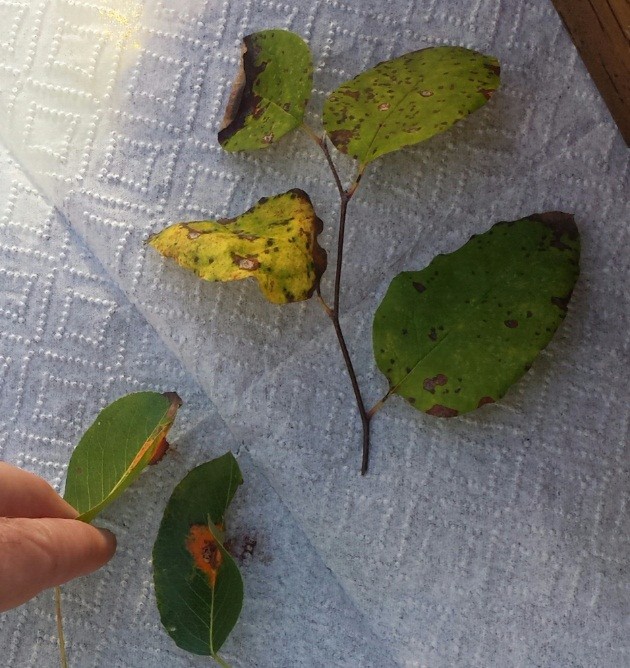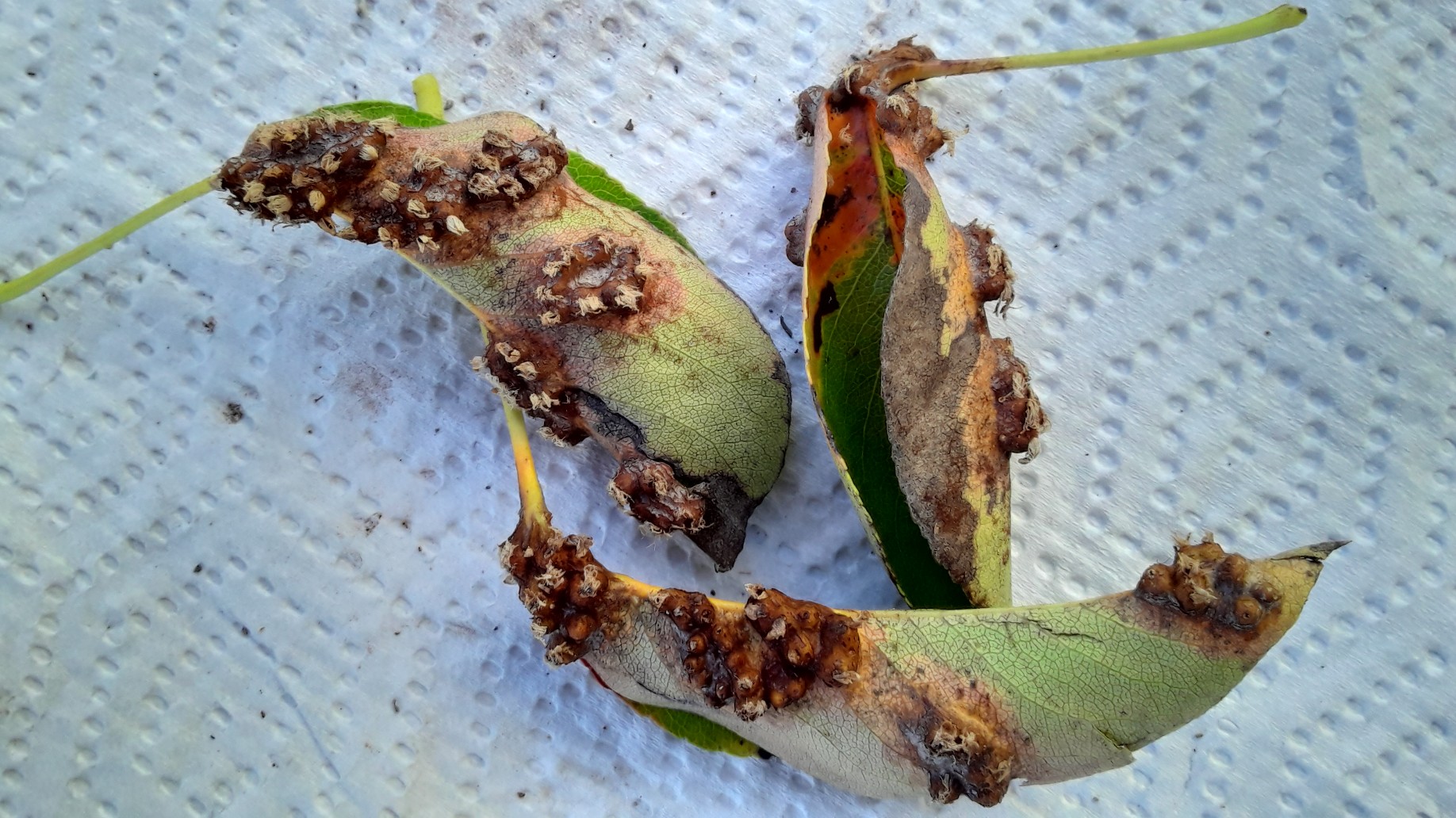In some places in the Seattle area the backyard pear production was really poor.
I know pear rust is a growing problem for us here (as I mentioned in a previous post) but I have to wonder if that would be what would cause our losses so much with the pears.
Did anyone else have problems with their pears this year and any ideas why? Thanks.
I have one orcas pear which is the only pear I have. There's enough overlap in the spring with my japanese round pears to make a constant crop every year. A month ago I noticed other trees had ample pears hanging in other's front yards.
During a few years in the 90s that I had lived around your area I did lots of scouting around for pear trees. I would go to a japanese pear breeding project on Vashon Island and became a public opinion evaluator for Pete on his new seedlings. With some of the trees I was seeing that the most consistently high producing cultivars were the very few of them that had a very early ripening time. The corollary here is that there was enough vacancy time after August 11th that the tree made adequate recovery of energy for the following spring bloom.
The one I wanted was such a productive tree it broke branches and although the fruit was not perfect it was good for more looking into and it did have a european pear flavor. Then fortunately Pete was such a nice guy that he released some rootsprouts that formed due to part of the tree breaking. Over twenty years have since gone by and it still proves to be as consistent as ever on it's own roots or completely topworked on another.
I also received some scions from his higher quality japanese pear that had consistently low production at the Island and it continues to be low to nothing here barely north of Portland. It ripens just as early as the previously described sibling thus proving that sometimes the problems of cropping are related to disease or either too late in the previous seasons crop load.
This year the delicious sibling (after a low set last year) had indeed zero.
-Rooney, from SW Washington.
I grow all my pears on quince rootstock. When I prune my quince tree, I put the sticks in the ground. The next year, it's quince rootstock. As long as I graft a quince compatible pear on it first, it does well and stays small. Then I graft other pears on it later. I have grafted so many that we break limbs on at least one of the trees every year. I haven't had any problems with pear rust. Do you have adequate pollination?
John S
PDX OR

My fingers are holding the only 2 leaves of the whole orcas pear tree that have this rust on them. The other twig with rust is quince-c of which (in the ground) is right next to and very much under the orcas but none of it grafted to any parts between each other. All of the quince leaves are bothered the same every year too. The quince never has flowered so maybe this is why.
I did have the Vashon Island productive japanese round pear type doing well prior to my removing the union from quince. Which never got effected at all -so some pears are very resistant from getting it unlike some closer branches of the orcas which can slightly catch on, but still crop.
Well, I can't understand where John said he has an orcas pear unless in another topic on rust elsewhere.
My other on-topic comment is a cultivar selection approach. I took two known to be productive pears from west coast islands and they have for many years been established in my home area right next to a quince that is always getting rust. The one European pear 'orcas' was found in Orcas island. The other from Vashon Island is a highly productive japanese (aka asian) pear.
As underneath the picture I posted I commented the quince slightly effects the leaves of the 'orcas' pear every year. I will however add that I don't know if the rust from quince makes the 'orcas' slighly less productive because the quince was there all along. The japanese pear from Vashon Island got introduced and grafted to the quince, meaning that the quince still had growth under the graft and continued non stop about rust production every year. So to nail your question -the effects were never shown on the japanese pear ever. The effects were always directed towards the nearest branches of the orcas pear.
So we have two pear tree cultivars found and chosen as trees capable of reliable production inside of high disease pressure islands that were never treated and placed next to a quince that acts like a rust factory and of the two cultivars only the one (orcas) is slightly effected by it.
(the orcas story was relayed from a 20 year old version of a Raintree catalog)
You might know Mark Lee from the fruit group up there who lives in a convergence zone in Everett. He was looking for things that had any promise growing fruit which he has difficulty in his area because of the weather patterns. You can always ask and learn from him too because he has had this same japanese pear from me for ages now.
John is also a great resource for his help on other topics related to compost spray cures for others' problems with rust on pear trees.
Thanks Rooney....I got mixed up and was thinking John was the one who posted the pic of the rust on the quince and orcas tree....sorry...but thanks for the clarification....perhaps the Orcas has some naturally resistant properties about it. The Japanese pear is nice but I really would like to find European pears that are resistant to the rust.
Idyllwild
jafar
Marsha H
Viron
1 Guest(s)

